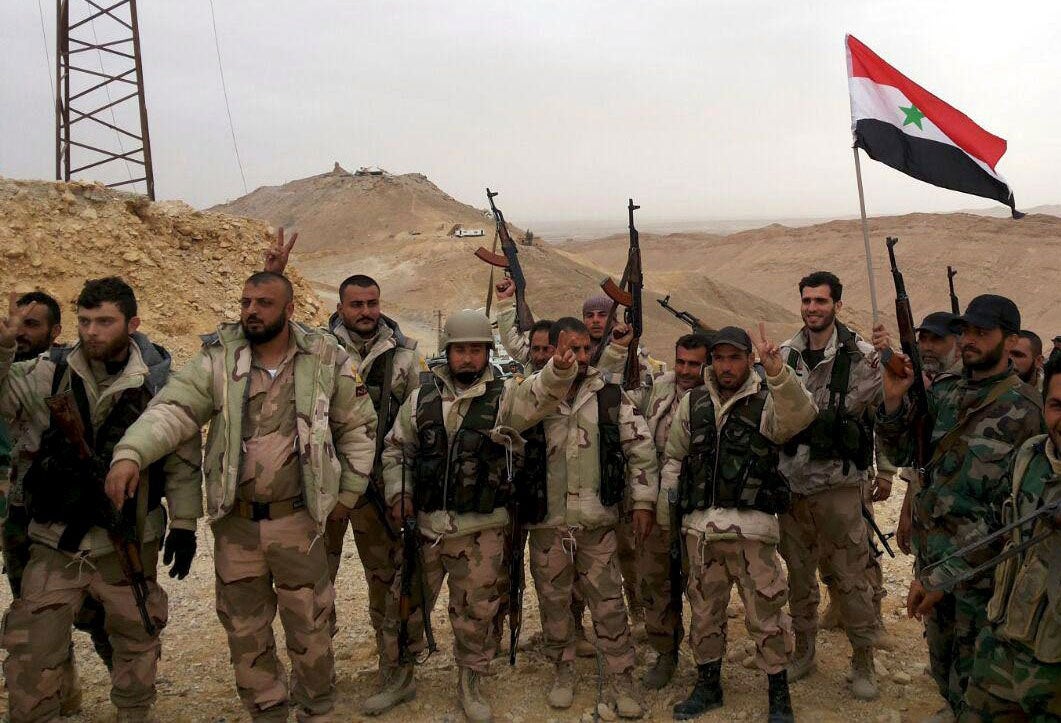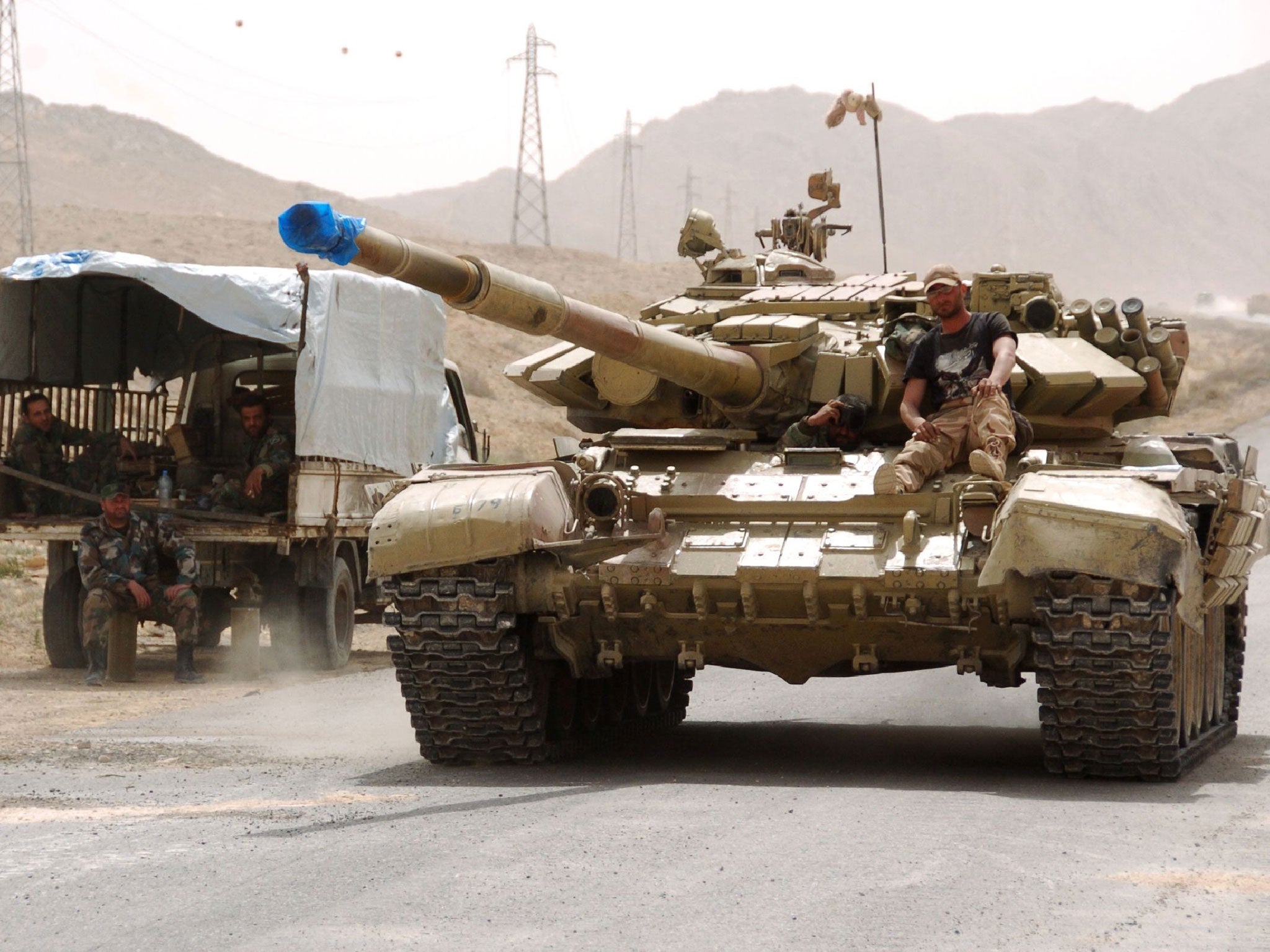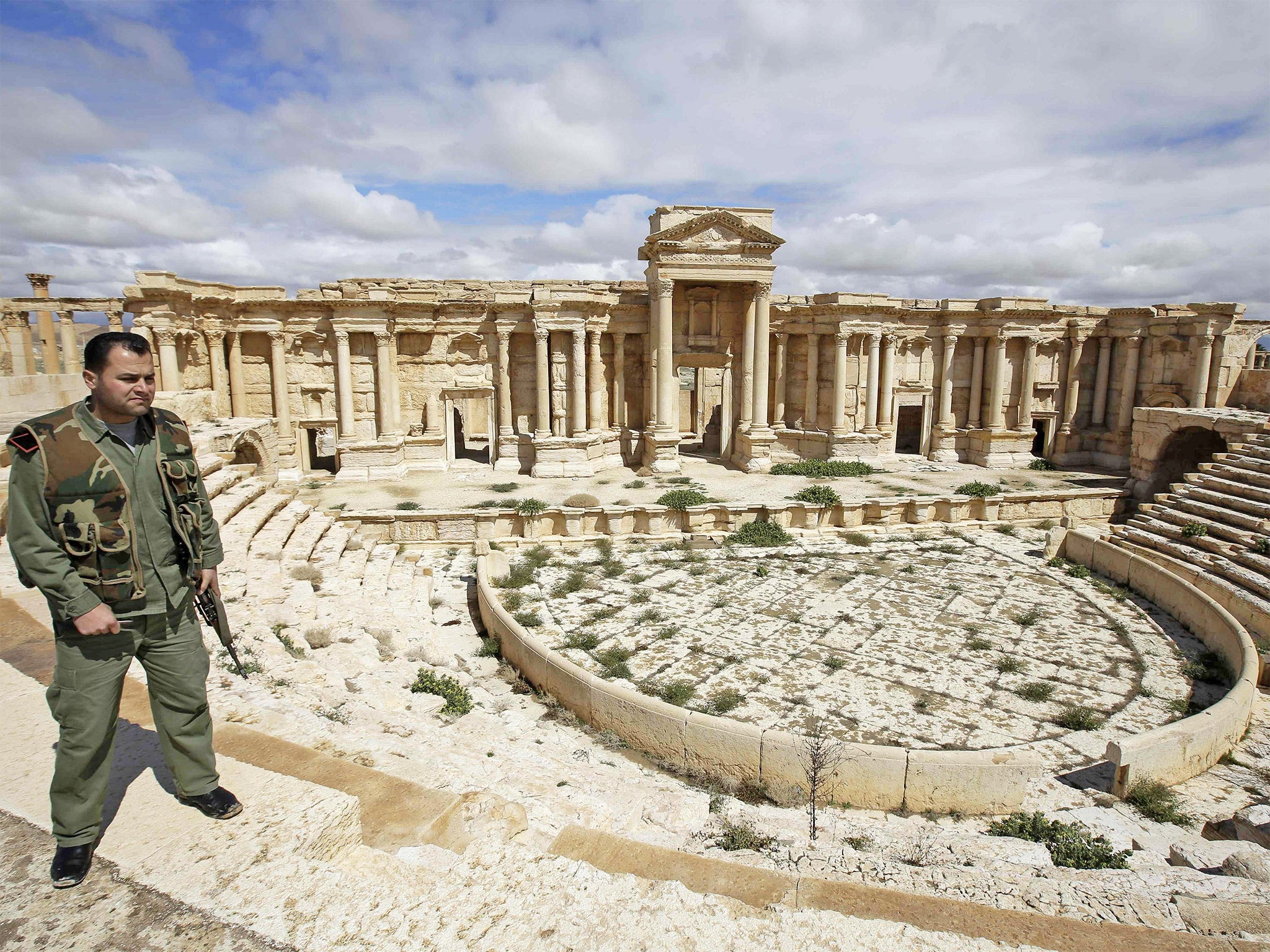Isis driven out of Palmyra as Syrian state forces retake 'complete control' of ancient city
Monitoring groups call it the biggest single defeat for Isis since it declared a caliphate in June 2014
Your support helps us to tell the story
From reproductive rights to climate change to Big Tech, The Independent is on the ground when the story is developing. Whether it's investigating the financials of Elon Musk's pro-Trump PAC or producing our latest documentary, 'The A Word', which shines a light on the American women fighting for reproductive rights, we know how important it is to parse out the facts from the messaging.
At such a critical moment in US history, we need reporters on the ground. Your donation allows us to keep sending journalists to speak to both sides of the story.
The Independent is trusted by Americans across the entire political spectrum. And unlike many other quality news outlets, we choose not to lock Americans out of our reporting and analysis with paywalls. We believe quality journalism should be available to everyone, paid for by those who can afford it.
Your support makes all the difference.The Isis jihadist group has been driven out of the ancient Syrian city of Palmyra and government forces have retaken “complete control”, according to state media reports.
In what would be a major symbolic victory over the militant group, Syrian state TV reports quoted a military source saying that the army had recaptured the city with the help of militia allies.
Forces loyal to President Bashar al-Assad had “complete control over the city of Palmyra” as of Sunday morning, the military source said.

In a statement aired on Syrian TV, the General Command of the Syrian army said it could confirm "security and stability" had been returned to Palmyra with the assistance of the Russian and Syrian air forces.
It said the recapture of the ancient city showed that "the army and its friends" were the only combatants capable of fighting and eradicating terrorism.
And state media also carried a statement by President Assad himself, who described the victory in Palmyra as an "important achievement" for regime forces.
He said: "The liberation of the historic city of Palmyra today is an important achievement and another indication of the success of the strategy pursued by the Syrian army and its allies in the war against terrorism."
A spokesman for the Syrian Observatory for Human Rights said earlier that some gunfire remained in the eastern part of the city, but the bulk of Isis forces had moved out to the east leaving Palmyra under government control. He described it as the biggest defeat for the group since it declared a caliphate across its territories in June 2014.
Though symbolically important, the modern city next to Palmyra is also a major strategic gateway to much of Syria's eastern desert.
Isis was reported as losing the battle for Palmyra on Saturday, though the jihadist group initially resisted those state media claims with propaganda videos of their own.
Some on-the-ground activists still suggest the group holds as many as three neighbourhoods in the city, but it now seems clear the majority of its forces fled over the course of Saturday night.

Rami Abdulrahman, the director of the Syrian Observatory, said the bodies of more than 400 Isis fighters had been left behind after the fighting, the culmination of an intensive three-week campaign by Assad forces supported by Russian air strikes.
A Unesco World Heritage site and home to some of the finest ancient Roman ruins in the Middle East, the loss of Palmyra to Isis was mourned around the world.
The jihadist group had a track record of destroying any religious symbols and structures within its territories that did not fit with its ultra-conservative interpretation of Sunni Islam, describing them as idolatrous.

Sure enough, within a few months of taking the ancient city last May, Isis had destroyed two of its most elaborate temple buildings and posted evidence of the acts online.
Syria's antiquities chief said this week that other ancient landmarks were still standing and pledged to restore the damaged monuments.
"Palmyra has been liberated. This is the end of the destruction in Palmyra," Mamoun Abdelkarim told Reuters on Sunday. "How many times did we cry for Palmyra? How many times did we feel despair? But we did not lose hope."

Join our commenting forum
Join thought-provoking conversations, follow other Independent readers and see their replies
Comments